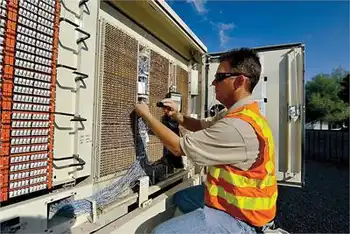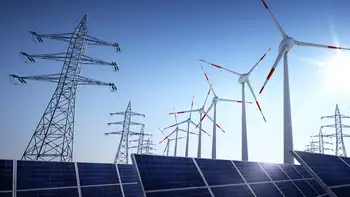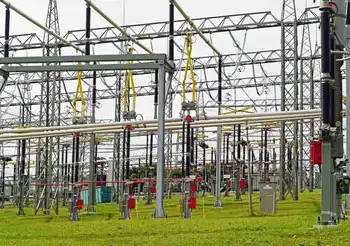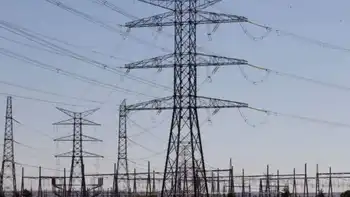UK commitment to nuclear questioned
By New Statesman
Electrical Testing & Commissioning of Power Systems
Our customized live online or in‑person group training can be delivered to your staff at your location.

- Live Online
- 12 hours Instructor-led
- Group Training Available
The UK is now, it seems, committed to an indefinite future of nuclear power; a policy decision which represents a dangerous, highly irresponsible and costly distraction from the real challenge of tackling climate change.
At a time when energy companies are warning homeowners to expect a hike in prices, and the price of oil has rocketed to an unprecedented $100 a barrel, the government has launched a PR offensive in favour of nuclear energy. But in choosing nuclear as the way forward, the Labour government is guilty of a staggering failure of political vision.
Rather than looking at the real solutions to demonstrate that there are safer, more effective and more sustainable answers to the energy crisis, and inspiring a new direction on housing insulation, improved efficiency and renewables, Gordon Brown has attempted to intimidate people into blindly accepting nuclear as the only option.
Opposition to the move has been widespread. In the South East constituency alone, many residents have expressed disgust at plans to build new nuclear facilities at Dungeness in Kent. Those living near to such sites earmarked for development will now suffer the direct consequences of the governmentÂ’s new nuclear push. For example, a number of epidemiological studies have discovered unusually high incidences of childhood leukemia in areas close to nuclear sites.
The fact is that it simply isn't true to call nuclear power the ‘answer’ to the so-called energy gap we face over the next 10 years, and it cannot be the answer to climate change. The earliest that a new nuclear power station could come on stream is around 2017 – too late to fill the energy gap and seven years after the deadline for the UK’s 20% emissions reduction target. Even if Britain built ten new reactors, it's been estimated that nuclear power can only deliver a 4 per cent cut in carbon emissions some time after 2025.
Many nuclear supporters like to highlight the benefits of nuclear power for climate change. But while it is true that enriched uranium releases zero CO2, this does not make it carbon-free. Throughout the lifespan of a nuclear facility – from the construction of the plant and mining for uranium ore, to fuel processing, decommissioning and disposing of the nuclear waste – a significant amount of energy is consumed.
Furthermore, nuclear power is not cheap. No nuclear plant has ever been built without money from the public coffers, yet we are supposed to believe that this government will ensure private energy firms will foot the bill for the lot - from construction to clean-up. According to the Nuclear Decommissioning Authority, the total costs of cleaning up the existing nuclear waste are likely to reach an astronomical £70bn. On top of this, the costs of building a new waste dump could be as high as £21bn. This will inevitably lead to the taxpayer footing the bill.
Public concerns over the safety and ethics of nuclear have never gone away. As well as being a ripe target for terrorist attacks, civil nuclear programmes are inevitably linked to military capabilities. Furthermore, if Britain chooses to go down the nuclear route, it robs us of any moral authority to lecture other countries on their nuclear aspirations, and highlights the enormous hypocrisy of the GovernmentÂ’s position on Iran.
Ultimately, nuclear power is not just unsafe and unsustainable – it's entirely unnecessary. A combination of renewables, energy efficiency, decentralized energy and demand reduction could deliver emissions cuts and energy security much more safely and effectively.
The UK has some of the best renewable energy sources in the world, yet we lag behind other nations whose governments have developed more forward-thinking energy policies. For example, the reason that Germany has 300 times as much solar power and 10 times as much wind power than the UK is simply because German politicians, led by the Greens, have had the political will to lead the way.
On energy efficiency, the government's own figures show there is the potential to save over 30% of all energy used in the UK solely through efficiency measures that would also save money. Moreover, large centralized power stations, whether nuclear or gas, currently waste two thirds of the energy used in electricity generation before it even reaches our homes.
This waste alone accounts for a full 20% of UK CO2 emissions. Nuclear would lock us into a centralized distribution system for the next 50 years at exactly the time when opportunities for micro generation and local distribution networks are stronger than ever.
Radical reforms are urgently needed to the way renewable energy technology development is supported in the UK. Government grants are derisory and the private sector currently invests just £250m a year in renewable energy technology when to significantly boost this industry we need to see more like £2.5 billion going into new projects.
The UK has a real opportunity to lead the way in the development of alternative sources of renewable energy, such as wind and solar power, yet this Government has shown that it prefers to hold on to its ambition of introducing more dirty, dangerous and expensive nuclear power.
The Sustainable Development Commission defines sustainable development as improving the quality of life for people today without damaging the prospects of those living in tomorrow. If the government continues to ignore the calls for safer, greener and more sustainable energy alternatives, future generations will end up paying a high price for our nuclear legacy.











